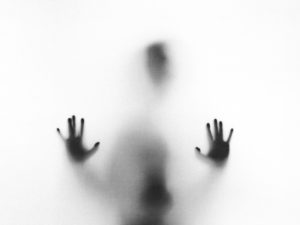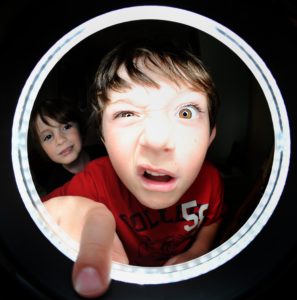by Jenny Rose | Jan 25, 2018 | Power
Arguing with what is.
Possibly the most fruitless endeavor in the world.
Yet many of us consistently argue with how we are, how others are, and how the world is.
Arguing with what is is like living in an unending war. Clinging to a story inconsistent with what is requires constant vigilance. Our lives begin to revolve around the fear that the truth we refuse to acknowledge will escape or be exposed.

Photo by Ian Espinosa on Unsplash
We cannot allow that to happen, so we put all our energy into convincing ourselves that what is isn’t. Then we start trying to persuade others to validate our particular reality because God speaks to us, or we’re especially victimized, marginalized, enlightened, rich or powerful. If we can’t persuade others, we try to create and enforce rules requiring them to fall into line, to agree, at least tacitly, with our point of view and belief system. We scorn critical thinking, science and evidence-based data. We discourage questioning, careful definitions and nuances. We create jargon, acronyms, blacklists and smear campaigns. We enlist the sympathy, empathy, kindness and compassion of well-meaning but naïve people. We set up zero sum games, use gaslighting, violence, abuse, projection, deflection, sweeping and inaccurate generalizations and distortions. We hurt ourselves, and we hurt others.
Arguing with what is is a full-time job.
My particular version of arguing with what is takes place mostly in my head. For example:
I don’t feel loved.
What? How can you say that? Remember that one kiss at the beginning, the most passionate kiss of your life? You know you want that again! Think of how funny he can be, how charming, how much fun! If you don’t feel loved it’s because you’re not trying hard enough. You’re ungrateful. You’re disloyal. You’re a bad partner. You don’t deserve him. You want too much. You’re needy and demanding. Of course he loves you, he’s just not comfortable saying it! You are happy and loved. Get a grip!
I don’t feel happy or loved.
I had this ding-dong conversation with myself for years. I desperately and repeatedly tried to convince myself I was both happy and loved, but I could never quite silence that deep internal voice that went right on saying, “I don’t feel loved.” It wouldn’t shut up. After years of this nonsense, I finally got so exhausted I stopped arguing with my true feelings and ended the relationship. Then, one day I came across narcsite dot com and immediately recognized the narcissist-empath dynamic.
You know what? I was right. I didn’t feel loved because I wasn’t, in fact, loved.

Photo by Travis Bozeman on Unsplash
Arguing with what is means fear and self-doubt are my constant companions.
So what’s the other side of the coin? What’s the fix for arguing with what is?
This magical phrase: However this needs to be, it’s okay with me.
Say it aloud: However this needs to be, it’s okay with me. Is it a lie? It usually is a lie for me when I first apply it to any given situation. I want things to be predictable, controlled and adhere to my expectations and standards. I expect that of myself, of others and of the world.
I haven’t had great luck with that expectation. The rebellious world is chaotic, unpredictable and unexpected. I’m not in charge of anyone but myself, and my feelings (along with the rest of me) are disobedient and refuse to be controlled.
My need for control and predictability are rooted in fear and lack of trust in myself. If, at any moment in any day, however things need to be is not okay with me, I know I’m dealing with fear or lack of self-trust, and those are both places where I have all the power. That instant refocus from avoiding, denying or refusing an inconvenient or unexpected truth or reality over which I have no power to the very center of my power clears away anxiety, confusion and fear. What happens in me, in a day, or in the world is not really the problem. The problem is in the way I manage my power and my choices. Addressing my own power and choices allows me to say, with perfect truth, that however this needs to be, it’s okay with me.
Being okay with the ways things are doesn’t mean endless love, light and turning the other cheek. It doesn’t mean I accept boundary violations, bullying, coercion, violence or any other kind of power-over games. It doesn’t mean I tip-toe through life pleasing others, following rules and keeping silent. It doesn’t mean toadying to the political correctness police. It doesn’t mean I feel no frustration or disappointment, or that the status quo should remain unchallenged and unchanged. It means clarity about where my power is.
Nobody wants a flat tire, herpes, an unwanted pregnancy, a cancer diagnosis, mental illness, the flu or to lose a loved one. We don’t want superstorms that wipe out our homes, the uncertainties and anxiety of climate change or food and water shortages. Nobody voted for lead in their drinking water, or to experience genocide. Nobody wants to be silenced, attacked, abused, marginalized, shot or scapegoated.
Yet all these things are. They’re real, along with many magical, wonderful things, and I can’t change the way things are.

Photo by Ludde Lorentz on Unsplash
I can only change the way I am. I can decide when and how to speak. I can decide how I interact with others. I can listen, learn, research, ask questions, think critically and decide where I stand on important issues. I can speak up for those without voices. I can pay attention to my own integrity and operate within it. I can disengage, refuse to pick up poisoned bait, move away from where the blow is going to land (sometimes) and learn self-defense.
I can say no.
I can learn to trust my own courage, willingness to love, intelligence, feelings and ability to adjust and adapt to whatever happens. I can choose confidence and curiosity as companions.
I can make sure that however I need to be, it’s okay with me.
I can surrender to others in all their strengths and imperfections. Each one of us is however we need to be, sick or well, destroyer or hero, weak or strong, power-over or power-with. People in the world are okay with me, and I choose who I engage and connect with, who I support or hinder, who I share power with, who I collaborate and cooperate with and who I allow in my life.
However this minute, this hour, this day needs to be, it’s okay with me. If I catch the flu, it’s okay with me (Ugh). If I can’t get out of the icy driveway to go swimming, it’s okay with me (Rats!). If I reread the rough draft of this post and decide it needs to be rewritten before tomorrow when I post, it’s okay with me (what a pain in the neck!)
I can accept what is, deal with it, and go on.
Or I can argue with what is.
It’s a chocolate-or-vanilla choice, and we make it a hundred times a day.
Whatever you choose, it’s okay with me.
And So

Photo by freestocks.org on Unsplash
And so, after all, it was no use,
That desperate determination to please.
In the end a hidden, untamed thing
Always looked out of my eyes,
Beseeching for freedom,
And none of us could beat it down.
Now all the rigid outlines of my life
Have fallen around my feet in graceful folds.
I’ve counted silver threads and lines
And granted freedom.
If there’s no lover for what I am
I can kiss my own shoulders.
All content on this site ©2018
Jennifer Rose
except where otherwise noted
by Jenny Rose | Jan 18, 2018 | Connection & Community, Emotional Intelligence
For several weeks the depth of snow has limited my ability to walk on our 26 acres. Last week we had a couple of inches of rain that arrived with the scent of the sea and tropical warmth, followed by a hard, fast freeze. The rain melted a great deal of snow and we had flooding. The sudden freeze created a hard crust on the remaining few inches of snow, and as we returned to subzero winter temperatures I decided to see if I could get down to the river.

Photo by Vincent Foret on Unsplash
The crust supported my weight — sometimes! Other times I broke through and floundered up to my knees, the icy rind bruising and scraping my lower legs in spite of long underwear and heavy canvas pants. I saw tracks of deer and moose, rodents and birds in the snow. The river, ice encased, had thawed slightly and flooded during the rain, so the cracked ice was piled in slabs. In some fissures I could see open water. In other places thin new ice had formed and old, yellow ice lay flat but spiderwebbed with cracks.
As I stood next to the river catching my breath and marveling at the power of winter, I could hear the voice of the ice. It’s an odd sound, because it comes from beneath one’s feet rather than the sky or the world around. The ice pops and groans, sings and mutters and snaps. It’s a wild, unearthly voice, a chorus of cold water, cold air and cold crystals, the medley of flowing, living water and rigid winter armor. I wondered what it sounded like to the creatures hibernating in the river bed and the beavers in their dens.
The trees here have voices as well. When the wind blows they creak and groan as they sway, and their branches rub together, making a classic haunted house rusty hinges sound. In the deep winter when it’s very cold, sap freezes, expanding, and the trees explode with a sound like a gun going off. Sometimes they split right through the trunk.
So many voices in this world. Every place has its own special choir, every season its own song. The sound of a beetle chewing bark, the Barred owls calling to each other in the snow-bound January night, the agonized shriek of a vixen calling for a mate on a February midnight of crystal and moon, and the barely discernible high-pitched talk of the bats as they leave their roost at dusk are all familiar voices to me.
I’m a seeker of voice, a listener, partly because I’m a writer and partly because I know what it is to be silenced. Our world contains so much pain and suffering, such unimaginable horror and injustice that my compassion is frequently overwhelmed. I cannot staunch the wounds and wipe the tears of the world.
But I can listen. I can bear witness. I can stand and wonder and marvel at the wild ice, the mating owls, the hunting bats and also the handful of people in my life. For a few minutes, I can encircle another with my presence and attention, allowing their voice to speak freely, truly and fully. I can choose to have no agenda about the voices of others, no expectations or judgements.
I can also give that to myself. It’s only in the last three or four years that I’ve reclaimed my own voice. That, more than anything, is why I began writing this blog. Once a week I sit in front of a blank page and write in my true voice. Blogging, for me, is not about validation or statistics. It’s not about trying to please anyone, creating click bait or competing. It’s about contributing my voice because I am also here, not more important but as important as anyone else.
Using our voice does not require a listener.
Listening to the ice and the world around me has allowed me to realize, for the first time, how deeply I’m committed to appreciating and supporting authentic voice. My appreciation is a thing apart from agreement or disagreement with what I hear. Speaking our truth is not a matter for criticism. It’s an offering of self, and listening without judgement is an acceptance of that offering. I feel no need to annihilate those I disagree with.

Photo by Quino Al on Unsplash
The dark side of voice is the voice that deliberately drowns everyone else out, the voice that silences, controls and distorts our world and our sense of self. The voice that deliberately destroys is an evil thing, a thing afraid and threatened by the power of others. Dark voices throw words like a handful of gravel in our faces.
An essential part of self-care is learning to recognize, minimize and/or eliminate our exposure to voices we experience as destructive or silencing. This is boundary work. Note the difference between appropriate boundaries and dropping an atomic warhead. Healthy boundaries do not disrespect, invalidate or silence others.
I wonder what the world would be like if all criticism, jeering and contempt were replaced with “I hear you. I’m listening. I believe in the truth of your experience. You are not alone.” What would we be like if we gave that gift to ourselves?

Photo by Quino Al on Unsplash
And what of lost voices? I don’t mean unheard or unremarked, but those voices who spoke, faintly, for a moment, and then were silenced so brutally and completely no one but the silencer heard their last cry. Such a person lives, breathes, walks, eats and sleeps, but he or she is a shell mouthing superficial words. Attempts to draw close, to understand, to share authentically and elicit a true voice in return are all in vain. The phone is off the hook. Silence and deflection are the only response. No one is at home. Love and listening count for nothing and behind the mask is only emptiness. Connection is denied.
How many voices can we truly hear? The world is filled with a cacophony of sound made by billions of people. Even here in the heart of Maine the voice of the river is punctuated by traffic noise. We all seem intent on increasing our exposure to voices via social media, 100 TV channels, streaming, downloading and YouTube. Does all this clamor make us better at listening and honoring voices? Can we listen to our child, our mate, the TV, and read Facebook all at the same time?
Some people say they can, and perhaps it’s true. What I know is I can’t. I don’t want to. I don’t feel listened to when I’m competing with other voices. I can’t hear myself when my day is filled with racket and din. I can’t extend the gift of presence to 100 friends on Facebook. I can’t discern between an authentic voice and a dark voice in the middle of uproar.
Voice is precious. It’s sacred. No created character lives in our imagination without voice. Silencing voice is a horrific violation. I have promised myself I’ll never again abdicate my own voice.
Honoring voice, yours, mine, theirs, and the world’s.
All content on this site ©2018
Jennifer Rose
except where otherwise noted
by Jenny Rose | Dec 1, 2017 | A Flourishing Woman, Self-Love
Relationship is the finest crucible I know for personal growth and transformation. Unfortunately, it’s also the best crucible for abuse and destruction, but I no longer focus on that aspect of connection with others. My relationships now are based on growth, not destruction. I have promised myself this.
As my partner and I slowly move toward shaping a life of self-sufficiency and holistic collaboration with our land and community, we are experiencing (naturally) many unwelcome pauses and fallow periods as we wait on favorable weather, the scheduling needs of others or the availability of funds.
I’ve noticed during these frustrating pauses my partner serenely deals with the work of the day and then is perfectly happy to sit on our sagging couch, a book in one hand, the TV remote in the other and the cat velcroed to him, occasionally getting up to feed the wood stove.

Photo by Lilly Rum on Unsplash
It drives me nuts. How does he do that?
We had a conversation about it over breakfast recently.
He’s hanging out and waiting for the stars to align so we can begin to move forward again. That might come in the form of some income, a phone call, a stretch of really warm days, or who knows what other miracles. He figures it will all work out, one way or another, in time, and meanwhile he might as well relax and enjoy life.
I, on the other hand, from my earliest memory, make Deals with the Universe. My Deal is that I’ll Be Good in order to get what I need to survive. Being Good is specifically defined.
- I will not complain, whine, want or need anything I don’t have.
- I will hoard what I do have and be grateful, because I have so much more than many others.
- I will work as hard as I can at all the tasks that can be done right here, right now, even if it’s only scrubbing the kitchen floor on my hands and knees or cleaning out closets.
- I will not wait, hope, dream. I will act. Now!
- I will not make excuses, procrastinate or (God help us) relax.
- I will never admit to feeling afraid or anxious or impoverished in any way. Being truthful about our experience is “airing dirty laundry,” which is shameful and vulgar.
Somewhere inside me is a hysteric who knows my partner is wrong. Sitting on the couch means he’ll never see his dreams come true. He won’t deserve to see dreams come true, because he’s not doing anything to help himself, to prove himself worthy of good things. He’s not hoarding what we have. He’s got a light on for reading and the TV on and he’s putting wood in the stove as though those six cords out in the barn will last all winter! (They will.) He’s not doing all the tasks that could be done. He’s failing the test, failing his side of the deal, and we are screwed.
All this panic and fear impel me to work harder and harder at everything. At anything. I must demonstrate to the Universe that I’m not a slacker, a sponge, an ingrate. I must also make up for his blasphemy of sitting on the couch, because we hold dreams in common, and we can’t manifest the lives we want without each other. Clearly, I must Be Good for both of us.
The infuriating but inescapable truth is that I can’t honestly say my Deals with the Universe work better than my partner’s approach. I’ve always had what I’ve needed to survive, but so has he!
It’s not fair.
Then, this last week I read the best essay I’ve come across on rape culture and its effect on women. The writer perfectly expresses much of my longing and the difficulty of allowing oneself to be fully and powerfully female. I feel more and more tension around this in our climate of hysterical political correctness, labeling, jargon and sloppy thinking. The increasing visibility of symptoms of rape culture give me hope that in some quarters there is a will to change, but will it be enough? Will we ever really see an equal playing ground for all people? Not necessarily the same playing ground, but equal in contribution and value, equal in respect, resource and power?
I don’t know.
Anyway, I went for my morning walk with the essay on rape culture and my Being Good rules rattling around in my head. There were snowflakes in the air under a mostly cloudy cold sky with occasional gleams of sun. The river flowed quietly along and I sat for a while under the trees to watch the snow fall in the water.

Photo by Joshua Fuller on Unsplash
What if, I wondered, instead of my exhausting and not-notably-effective list of what Being Good entails, I changed my Being Good Deal with the Universe to living the truest and fullest expression of myself possible? What if that included the entirety of my wants, needs, feelings, thoughts, creativity, passion, power and sexuality? What if that included all the great and small activities and experiences that give me pleasure? What if I gave my obnoxious, persistent and compulsive judgement a sabbatical, with an option for permanent retirement?
I was so intrigued by this that I’ve been playing with it for the last few days. In that time my laptop developed technical problems and is in the shop, so I’ve been without my usual habits, tools and routines. This post was not published first thing Thursday morning. I notice that life manages to continue in spite of it. I’ve read, walked, laid on my back on the ground in the sun, meditated, gone swimming and luxuriated in a hot therapy pool, done Tai Chi and ordered my favorite body oil. I’ve listened to Christmas music. I’ve eaten a bowl of ice cream. I’ve had an honest conversation with two women I like and admire. I’ve taken walks with my partner. This looks much like my usual life, it’s just that currently I’m allowing myself to enjoy my experience without shame, expectation or judgement.
Life is a lot easier and much more fun under my new (and simplified) Be Good Deal with the Universe. Will the Universe frown or smile upon this new Deal?
Who knows? Maybe it’s none of my business. Maybe the Universe isn’t looking over my shoulder, recording every action and thought, maintaining a cosmic scorecard. Maybe the Universe is sitting on the couch, alternately reading science fiction and watching reruns of Star Trek on Syfy and paying absolutely no attention to me whatsoever, and all my frenzied flapping around is just a waste of energy.
Sometimes I make myself tired.
I think I’ll go sit on the couch.

Photo by Josh Applegate on Unsplash
All content on this site ©2017
Jennifer Rose
except where otherwise noted
by Jenny Rose | Nov 16, 2017 | Connection & Community, Emotional Intelligence, Shadows
I recently had a conversation in which I learned about the degree to which my anxiety affected at least one of my now adult children.
Parenting is an ironic business. Having been a chronically anxious child myself, always feeling unsafe and afraid, I strove mightily to protect my own children from any sort of fear or insecurity. Of course, I did this by assuring them all was well, all the while fearing all was not and never would be well. Being no less intelligent than I am, they heard the words but knew the truth of my feelings, and thus their trust in me was damaged, an exact replay of what happened between me and my own mother. You know, that thing I was never going to do when I was a parent!
Well, I’m humbled. I’m also sad, because I didn’t want either of my kids to battle with the burden of anxiety. It’s a hard way to live.
However, I understand parenting, at best, is an imperfect process, and I try to hold my mother and myself with gentle arms regarding our choices as mothers. Parenting less than perfectly does not imply a lack of love. I know we both did the best we could with what we had at any particular point in time. No parent can do more.

Photo by Liane Metzler on Unsplash
Still, this kind of revelation is a far cry from my hopes, dreams and intentions when I held my newborns. On the other hand, it speaks to the strength of my relationship with my adult children that they can tell me the truth about their experience and I can hear it.
After our conversation, I’ve thought a lot about fear and anxiety. I can’t go back and reparent, but I wonder if I might, even at this late stage, find a way to extricate myself from the insidious tentacles of anxiety. I’ve been thinking about my life and trying to understand exactly what the roots of my anxiety are.
According to an Internet search, fear is “an unpleasant emotion caused by the belief that someone or something is dangerous, likely to cause pain, or a threat.” Fear is considered real, in that it’s right there in front of us, and elicits an immediate response.
Anxiety is an “emotion characterized by an unpleasant state of turmoil; a feeling of worry, nervousness or unease, typically regarding an imminent event or something with uncertain outcome; a nervous disorder.” Anxiety is differentiated from fear by being more diffuse and generalized and focusing on imaginary outcomes and possibilities. Physiologically, it elicits the same response, and therein lies part of the problem.
Both are unpleasant emotions or feelings affecting us physically, intellectually and emotionally. We evolved to respond to fear in certain specific physiological ways, returning to baseline as the fear passes. Fear is a valuable feeling, helping us discern and avoid danger. I certainly don’t want to disable mine. I know the feeling of fear, but it’s not a frequent experience.

Photo by Stefano Pollio on Unsplash
Anxiety, on the other hand, is a chronic state for me. I can’t remember ever being free of it. I’ve developed a lot of coping mechanisms over the years, some more effective and appropriate than others, but I can’t imagine what life would be like without it. As far as I can tell, the feeling of anxiety provides no benefits whatsoever to me or anyone around me. It’s highly contagious and negatively impacts others in my life, to say nothing of the damage it does to me. We are not constructed to tolerate the chronic level of physiological arousal produced by anxiety.
I never before actually looked up these words, and I’ve never had the above distinctions between fear and anxiety until this week. I conclude that I have no problem with my relationship to fear, but I’m a slave to anxiety.
I find a kind of mordant humor in having a chronic unpleasant feeling regarding uncertain outcomes. Excuse me? All outcomes are uncertain for everyone until they happen! Most of us operate most of the time as though we know exactly what will happen next, but we don’t. I’ve lived long enough to know that’s all an illusion. Nobody knows what’s going to happen next on any level. For some reason, I’ve given that fact the power to make me miserable.
I have a powerful imagination, which makes me a good writer and creator. However, it also occasionally makes me captive to my own stories. I forget that my stories are just that — stories. I make them up, tell them to myself over and over, and behave as though they’re true, never really noticing when they diverge from reality. In my head, it’s all so real. I do know the difference between a story and what’s real, but I have to remind myself to keep the two separated.
Some stories are so old and deeply ingrained it takes a cataclysm to make us realize they’re not true, and then we have to deal with being wrong and all the consequences, an uncomfortable, humbling and messy process.
If my anxiety is rooted in uncertain and imaginary outcomes and possibilities, it seems obvious I can disable it with a little discipline, a dash of surrender to uncertainty, a lot of presence and the will to change. I’m chagrined by the possibility my anxiety is a lifelong bad habit as much as anything else. Could that be true? Yikes.
I wish with all my heart I’d been a better equipped and less distressed parent, but I remind myself I can’t go back. I can’t begin parenting again from ground zero. I can’t go back to the young woman I was and explain all this and give her the support and safety to actively choose to turn away from anxiety before starting a family. There’s only today, so many years later, as I sit with my laptop in my lap and the sun coming in the windows, glancing at my notes, thinking and writing.
I know all I’ve ever wanted for my own mother is health and happiness. I want the same for my kids. I suspect Mom and my sons also want that for me. Perhaps it’s time for me to shape an anxiety-free life now, not only for my own sake, but for those closest to me as well.
We build our lives on outcomes, one after another, more than we ever notice. We remember the spectacularly good and spectacularly bad outcomes, but what about the countless others? Outcomes are complex, not black and white. Outcomes can create visible and invisible ripples that last a lifetime. I can hardly think of a more fruitless endeavor than worrying about or trying to control outcomes. I’ve survived every outcome to date. What makes me think I won’t continue to do so — until I don’t, of course? But the outcome of death is largely out of my control, too. Why worry?
There are so many things I’d rather do than struggle with anxiety!
There are so many stories to imagine, share and write, rather than keep in my head and hurt myself with!
Anxiety is too expensive. I’m not interested in maintaining it anymore.
Better late than never. My daily crime.

Photo by Senjuti Kundu on Unsplash
All content on this site ©2017
Jennifer Rose
except where otherwise noted
by Jenny Rose | Oct 26, 2017 | A Flourishing Woman, Mind
I went to the dentist last week. I spent the usual hour with the hygienist and then the dentist breezed in to give me four or five minutes of exam, comment, teaching and friendly conversation. Thankfully, I don’t require more than this, as my teeth are in excellent shape. In the course of those few minutes, I used the term “permaculture,” and he asked me what it was. I gave him a brief answer, and on the way out the hygienist said I had a “high dental IQ.”
“She has a high IQ, period,” he responded as he left.
I almost got out of the chair and went after him to explain that I’m the dumb one in the family, and certainly don’t have a high IQ.
As I’ve gone about life since then, I’ve thought a lot about that interaction. I’ve also been feeling massively irritated, isolated and discouraged. This morning I woke out of a dream of being in a closet groping for my gun, my knife, even my Leatherman, absolutely incandescent with rage, because a man outside of the closet was having a dramatic and violent meltdown, intimidating everyone present because of something I’d said or done that he didn’t like.
I wasn’t intimidated. I was royally pissed off.
When I had my weapons assembled, I stormed out of the closet and came face-to-face with a clearly frightened woman who was wringing her hands and making excuses for the behavior of the yelling man. I screamed into her face that he could take his (blanking) opinions and shove them up his (blanking blank) and unsheathed my knife, not because of her, because of HIM.
I woke abruptly at that point and thought, I’m not depressed, I’m MAD!

Photo by Nicole Mason on Unsplash
While I showered and cooked breakfast I sifted through IQ and conformity and cultural and family rules, economic success and failure, work, invalidation and silencing and keeping myself small. I thought of how pressured I’ve always felt to toe the line, be blindly obedient, follow the rules, ask no questions and be normal. Normal, as in compliant, and refraining from challenging the multitude of life’s standard operating procedures that “everyone knows.” Normal, as in not daring to resist, persist, poke, peel away, uncover. Normal, as in never, NEVER expressing curiosity, a thought, an experience, a feeling or an opinion that might make someone uncomfortable. Normal, as in never admitting that the way we’re supposed to do things doesn’t always work for me, and frequently doesn’t appear to work for others, either. I slammed around the kitchen, turning all this over in my mind, letting the bacon burn, and finally pounced on a keystone piece to write about.
What does it mean to be smart? Why do I feel like a lying imposter when someone makes a casual comment about my IQ? Why is IQ even a thing? Why does so much of my experience consist of “sit down and shut up!”?
Intelligence is defined on an Internet search as “the ability to acquire and apply knowledge and skills.” Please note the absence of any kind of test score in that definition. Likewise, there’s no mention of economic status, educational status or social status. Also, this definition says nothing about intelligence as a prerequisite for being a decent human being.
The definition takes me back to the playing field in which I wrote last week’s post on work. Here again we have a simple definition for a word which is positively staggering under assumptions and connotations.
Fine, then. I’ve explored what work means to me. What does intelligence mean to me?
Intelligence means the ability to learn, unlearn and relearn. Good learners do not sit down and shut up. We question, and we go on questioning until we’re satisfied with answers. We try things, make hideous mistakes, think about what went wrong and apply what we learned. We don’t do the same thing over and over and expect a different result. We exercise curiosity and imagination. We pay attention to what others say and do and how it all works out. We pay attention to how we feel and practice telling ourselves the truth about our experience. After a lot of years and scar tissue, we learn to doubt not only our own assertions, beliefs and stories, but everyone else’s as well. We practice being wrong. We become experts in flexible thinking. We adapt to new information.
We give up arguing with what is.
Intelligence endures criticism, judgement, abuse, taunts, threats, denial and contempt. It’s often punished, invalidated and invisible. Intelligence takes courage.

Photo by Cristina Gottardi on Unsplash
Intelligence is power. It does not sit at the feet of any person, ideology, rule or authority and blindly worship. It retains the right to find out for itself, feel and express its own experience, define its own success, speak its truth in its own unique voice, and it remembers each of us is limited to one and only one viewpoint in a world of billions of other people.
Intelligence is discerning the difference between the smell of my own shit and someone else’s.
For me, intelligence is a daily practice. It’s messy and disordered and fraught with feeling. It means everything is an opportunity to learn something new. Everything is something to explore in my writing.
I have no idea what my IQ is, and I don’t much care. I’m sick and tired of all the family baggage I’ve carried around about who’s smart and who isn’t and how we all compare. Honestly. What am I, 10 years old? Enough, already.
I’m also fed up with being silenced, and in fact I’ve already refused to comply with that, as evidenced by this blog. I understand a lot of people don’t want to deal with uncomfortable questions. Too bad. Those folks are not going to be my readers. It’s not my job to produce sugar-coated bullshit that can’t possibly threaten or disturb anyone.
So there it is. The practice of intelligence.

Photo by frank mckenna on Unsplash
All content on this site ©2017
Jennifer Rose
except where otherwise noted















